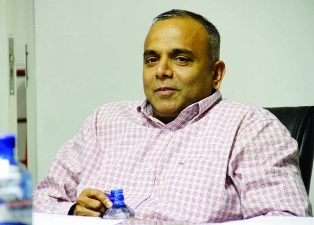
THE new salary structure imposed by the government on parastatal bosses is still unsustainable for most government entities as they continue to reel from massive debts, dilatory supervision, gross mismanagement and massive corruption, trade unionists and economic analysts said yesterday.
Njabulo Ncube Deputy Editor
On Tuesday the government announced it had slashed salaries and perks for parastatals and local authorities’ bosses with immediate effect to $6 000 monthly, pending finalisation of a comprehensive salary structure crafted by the Cabinet Committee on State Enterprises and Parastatals Development.
The drastic measures followed revelations some chief executives of State entities earned obscene salaries” with Premier Service Medical Aid Society boss Cuthbert Dube grossing $535 499, among a long list of other parastatal managers grossing more than $20 000 a month.
But trade unionists and economic analysts canvassed by Southern Eye Business yesterday said while the development augured well for the economy, the bulk of the State entities did not have the financial wherewithal to sustain the new structure, pointing out that some of them were yet to recover from the decade-long economic meltdown.
The situation, the analysts added, has been compounded by the comatose economy and ballooning debts at most State entities.
Zimbabwe Congress of Trade Unions (ZCTU) secretary-general Japhet Moyo said while the slashing of salaries was commendable, in reality most of the State entities ill-afforded the $6 000 cap, pointing out that some of the institutions had been battling to pay their workers’ monthly wages.
- Chamisa under fire over US$120K donation
- Mavhunga puts DeMbare into Chibuku quarterfinals
- Pension funds bet on Cabora Bassa oilfields
- Councils defy govt fire tender directive
Keep Reading
The National Railways of Zimbabwe (NRZ), for instance, owes its workers $60 million as at end of December 2013.
According to latest statistics from Zimbabwe National Statistical Agency, the NRZ’s revenue at half-year was $36,1 million averaging around $6 million per month largely due to dilapidated infrastructure.
Another Bulawayo-headquartered State entity the Cold Storage Commission (CSC), which used to earn the country $45 million in beef exports to the European Union, is still listed in critical condition and requires $58 million to fully recapitalise.
CSC is presently sweating from a $22 million debt. In the first half of the year, it recorded a $3 million loss.
“The ZCTU long raised a red flag when a survey we carried among government entities revealed most bosses earned more than $20 000 while the least paid worker took home plus or minus $200 yet the poverty datum line was estimated at $540,” Moyo said.
“Our position as ZCTU has been and continues to be that the country is going through a rough patch. The economy is failing to tick and most companies are performing below 30% capacity. The salary cuts were necessary, but the government does not show how it arrived at the cap because it is a known fact that very few government bodies at the present moment can afford to pay their bosses market salaries. The ZCTU demands a fair distribution of resources at parastatals.”
Labour and Economic Research Institute of Zimbabwe director Godfrey Kanyeze said “the government’s one-size-fits-all” policy was dicey, considering that some parastatals were collapsing.
“It is a fact entities cannot afford the new salary cap of $6 000 because they have either collapsed or are on the verge of collapse,” he said.
The cap has to be based on circumstances of individual parastatals. There is need for root and branch reform not this picking at the margins.”
“Slashing the salaries is a knee-jerk response which does not address the underlying problems. What is needed is a major restructuring of all the parastatals and it is something the government has been talking about since 1991.”
For a full list of all the parastatal CEOs’ salaries CLICK HERE.











